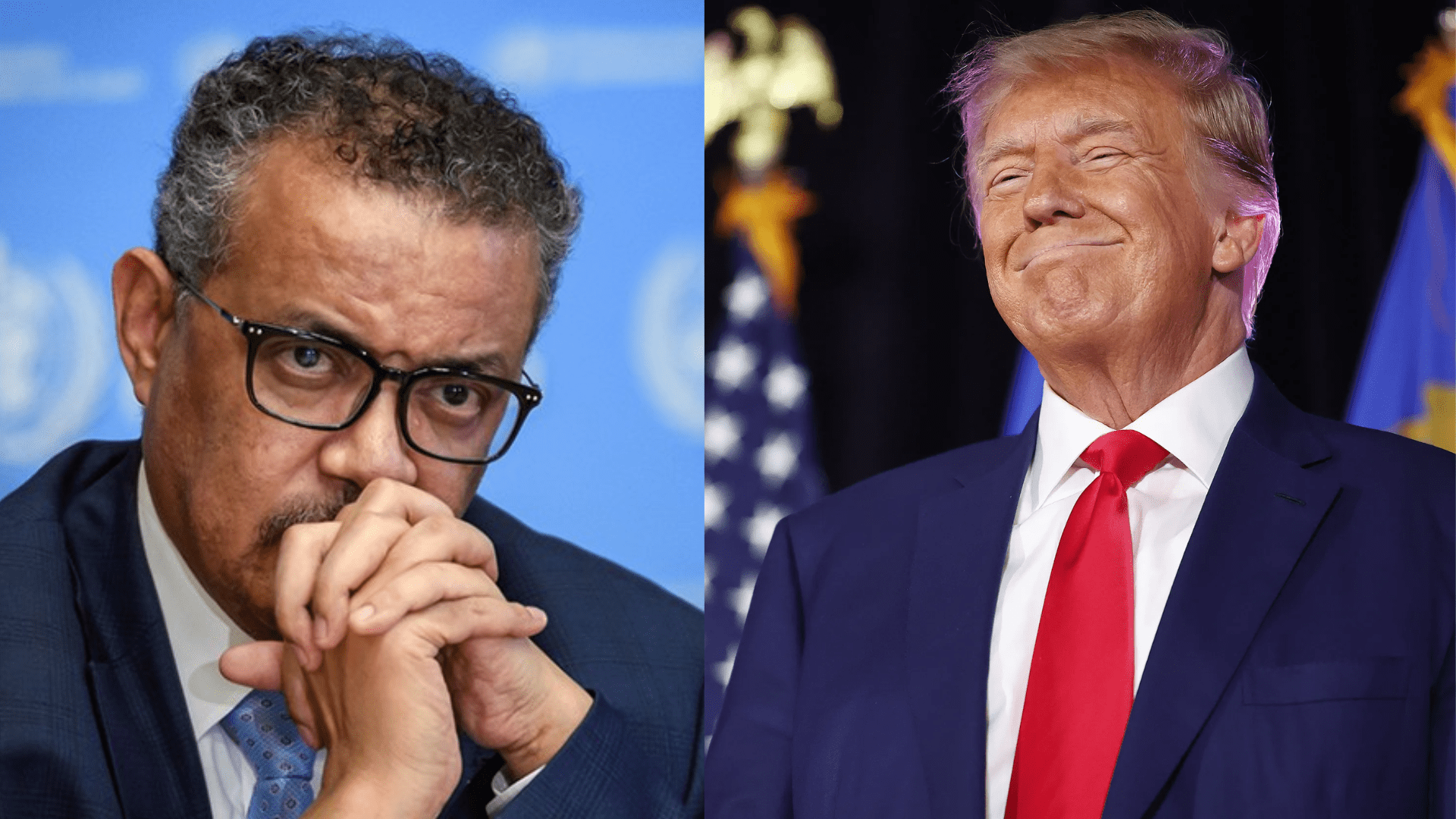Trump’s Controversial Move: United States Withdrawal from World Health Organization Sends Shockwaves

Trump’s decision to withdraw the U.S. from the World Health Organization (W.H.O.) was reversed on January 20, 2021, by President Joe Biden. The move, initially set in motion by Trump, faced criticism from public health experts who argued it would weaken global health efforts and diminish U.S. leadership on the international stage. Experts emphasized the need for global cooperation and multilateralism, especially in combating pandemics. Biden’s swift action to reverse the withdrawal signaled a renewed commitment to international collaboration and the importance of a unified global response to health challenges.
Credits: WSJ
Trump’s Planned Withdrawal from the World Health Organization Amid Mixed Reactions
On January 20, 2021, the U.S. officially withdrew its planned departure from the World Health Organization (W.H.O.)—a move that was previously set in motion by former President Donald Trump. The decision was met with mixed reactions, with many public health experts voicing concerns over the long-term consequences for global health collaboration. Trump’s administration had issued an executive order in July 2020 signaling the country’s exit, citing the W.H.O.’s mishandling of the COVID-19 pandemic and perceived failures, such as its inability to implement crucial reforms. Critics of the W.H.O. during Trump’s tenure also argued that the organization demanded “unfairly onerous payments” from the U.S., while countries like China paid less.
Trump Criticized W.H.O. for Bias and Slow Response to COVID-19, Leading to U.S. Withdrawal
The former president’s stance on the W.H.O. was no secret. Throughout 2020, he increasingly criticized the organization, accusing it of being too lenient with China and not responding swiftly enough to the global health crisis. As part of his broader “America First” agenda, Trump believed that the W.H.O. was biased, particularly in its response to the outbreak of COVID-19, which had emerged from Wuhan, China. His administration initially announced plans to halt funding to the W.H.O. before moving ahead with formal steps to withdraw. These tensions were emblematic of the broader international challenges under Trump’s leadership, which often involved isolating the U.S. from multilateral agreements and organizations.
Credits: UN
Experts Warn U.S. Withdrawal from W.H.O. Would Undermine Global Pandemic Response Efforts
Public health experts warned that the decision to leave the W.H.O. would have grave implications. The United States has long been a global leader in healthcare research, public health, and emergency response coordination, and its absence from the W.H.O. would leave a significant gap in global pandemic response efforts. In the midst of the COVID-19 pandemic, many argued that cooperation and a unified global response were paramount, as the virus did not recognize national borders. Health experts emphasized that the W.H.O., as the leading international body for health matters, played a critical role in facilitating collaboration between nations, tracking disease outbreaks, and coordinating research and resources.
Credits:Getty Images
U.S. Withdrawal from W.H.O. Threatens Global Health Leadership and Future Pandemic Response
One of the most concerning aspects of the withdrawal was the long-term impact on global health leadership. The United States, once a powerful force within the W.H.O., was seen as a key player in shaping global health strategies. By withdrawing from the organization, experts argued that the U.S. risked ceding leadership to other countries, particularly China, which has sought to increase its influence on global health issues. In this new environment, public health experts feared that the U.S. would become marginalized in future international health efforts, making it harder to rally global support in the fight against pandemics, emerging diseases, and other health threats.
The global response to pandemics has become increasingly complex and interconnected, requiring cooperation across countries and organizations. Diseases like COVID-19 demonstrate the need for a robust, global health infrastructure that can quickly mobilize resources, share information, and implement strategies. The W.H.O. plays a pivotal role in this infrastructure, making the U.S. withdrawal a potentially disastrous decision for both national and global health security.
U.S. Withdrawal from W.H.O. Poses Risks to Global Health Security and Pandemic Response
Additionally, the W.H.O.’s role in coordinating vaccine distribution, managing health emergencies, and setting health standards is unparalleled. The organization’s expertise and its access to data from around the world have proven indispensable in tracking the spread of diseases and informing public health responses. By distancing itself from this global framework, the U.S. risks undermining not only its own health security but also the global ability to respond to future health crises.
Credits: Fox7
Biden Reverses Trump’s W.H.O. Withdrawal, Reaffirms Commitment to Global Health Leadership
In his first day in office, President Joe Biden swiftly reversed Trump’s decision, halting the U.S. withdrawal from the W.H.O. In his statement, Biden emphasized the importance of rebuilding international alliances and reasserting U.S. leadership in global health efforts. He understood that in a world increasingly connected by travel, trade, and digital networks, a collaborative, multilateral approach to health was vital.
Biden’s decision to re-engage with the W.H.O. reflects a broader vision of American foreign policy, one centered on collaboration and diplomacy rather than isolationism. As the world continues to grapple with the COVID-19 pandemic and prepares for future global health challenges, the need for collective action has never been more pressing. The W.H.O. will continue to play a crucial role, and by working with international partners, the United States can help strengthen this essential institution, ensuring a more coordinated and effective response to the health crises of tomorrow.






